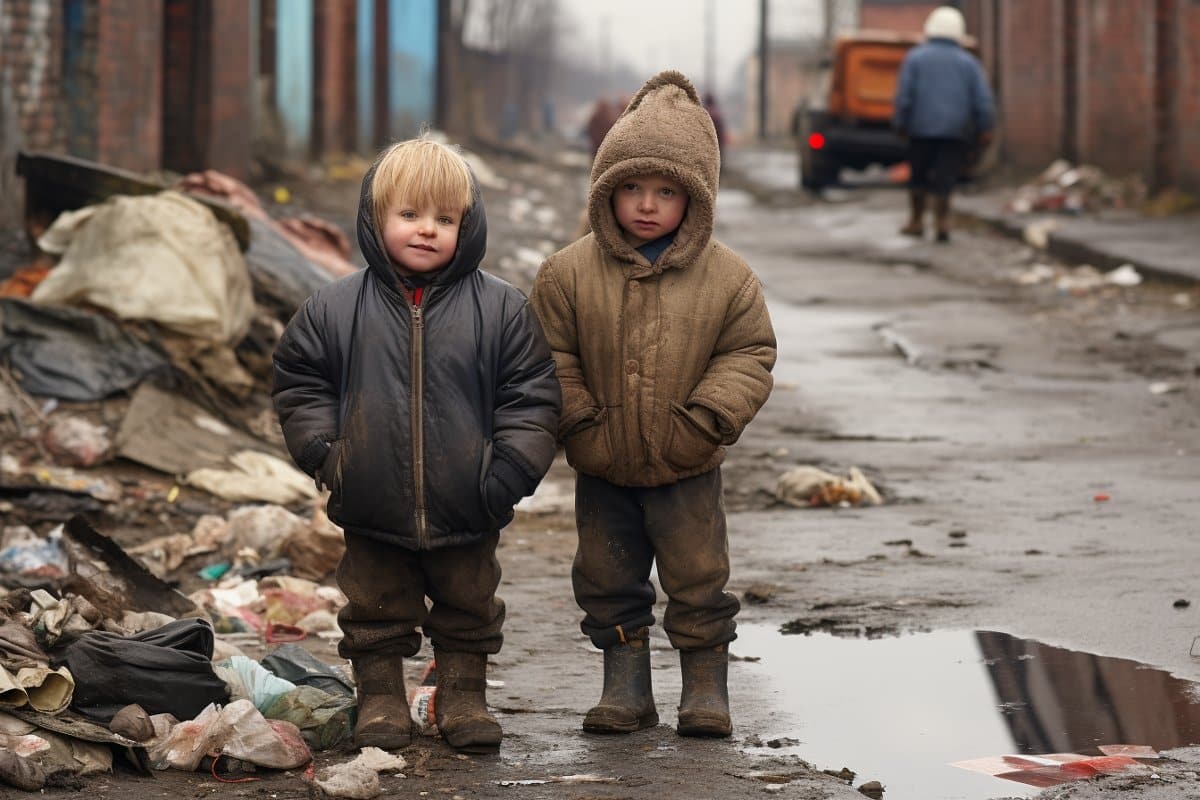Summary: Even a single experience of poverty can adversely affect a child’s development. Analyzing data from over 7,000 children in Ireland between 2008 and 2017, the study found that one-off poverty events, particularly around age three, can lead to cognitive and behavioral difficulties.
Parenting stress and reduced engagement in developmental activities, such as reading to children, were identified as critical factors. This research underscores the importance of addressing poverty directly through societal support and policies, rather than solely focusing on parenting interventions.
Key Facts:
- Single Poverty Experience Impact: Even a brief period of poverty, especially around age three, can have long-lasting negative effects on child development.
- Parenting Stress and Reduced Activities: The study highlights the role of parenting stress and limited ability to participate in cognitively stimulating activities as major contributors to developmental challenges in children.
- Policy Implications: The findings suggest that tackling poverty through redistributive policies and service provision may be more effective than focusing solely on parenting strategies.
Source: TCD
A one-off experience of poverty is enough to impact on a child’s development, according to a new study conducted by sociologists in Trinity College Dublin.
Parenting stress and reduced ability to invest in healthy activities, such as reading to young children, have been identified by the researchers as the key factors impacting on children’s development.

The study used data for more than 7,000 children from the Growing Up in Ireland 2008 birth cohort, tracking them at ages 9 months, 3 years, 5 years and 9 years. This covered the period from 2008 to 2017, when the living standards of many Irish families fluctuated with the recession and recovery.
Reporting an experience of poverty at just one of these interviews was classified as “one-off poverty” while those who reported poverty at three or four interviews were in “persistent poverty”.
The research investigated the connections between exposure to poverty in early to middle childhood and children’s cognitive and behavioural difficulties assessments at different ages.
Although it is well established that children from poorer families are at a higher risk of educational and behavioural difficulties, this study gives us fresh insights into why this happens.
Mengxuan (Suri) Li, PhD candidate at the Department of Sociology, Provost’s PhD Project awardee and the lead author of the study, commented: “We thought that persistent poverty would be the most harmful, but we found that even one spell in poverty negatively impacts on child development, especially if experienced around the age three. This is because falling behind early makes it difficult to catch up later.”
Yekaterina Chzhen, Assistant Professor at the Department of Sociology, added: “We also found that behaviour problems in early childhood make it more difficult for children to learn, resulting in a negative feedback loop over time.
“The study has several policy implications. Poorer families need to be enabled to engage in cognitively stimulating activities with their children. They also need to be supported so that they are less vulnerable to parenting stress.
“However, instead of interventions targeting poor parents, a more direct approach is to tackle poverty itself through redistributive taxes and benefits, and service provision, according to the authors.”
About this neurodevelopment research news
Author: Fiona Tyrrell
Source: TCD
Contact: Fiona Tyrrell – TCD
Image: The image is credited to Neuroscience News
Original Research: Open access.
“Parental investment or parenting stress? Examining the links between poverty and child development in Ireland” by Mengxuan (Suri) Li et al. European Societies
Abstract
Parental investment or parenting stress? Examining the links between poverty and child development in Ireland
This study investigates the relationship between multidimensional household poverty and cognitive and behavioural development during the formative years of childhood (from 9 months to 9 years), using nationally representative longitudinal data from Ireland for the cohort of children born in 2007-2008.
The results indicate substantial inequalities in Irish children’s cognitive and behavioural outcomes at age 9 by multidimensional poverty duration.
Children with at least one spell in poverty (out of four interviews) have worse cognitive and behavioural outcomes. Dynamic structural equation models provide evidence in support of a hybrid family investment/family stress model.
Although family investment processes account for some of the cumulative effects of childhood poverty on cognitive outcomes, family stress processes help explain the links between poverty and both cognitive and behaviour outcomes in early childhood.
Overall, poverty is strongly related to child outcomes over time via the direct effects of current poverty on child outcomes and path dependency in both poverty and child outcomes over time.
There are also indirect effects via the two child outcomes reinforcing each other as children grow older (with the effects of behaviour problems dominating those of cognitive ability), even as the parental investment and maternal stress pathways become less pronounced.







